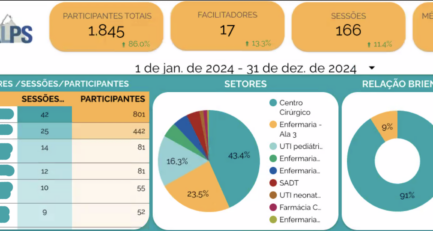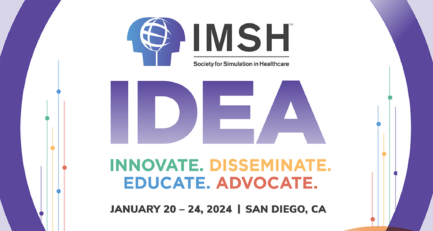Boston Simulation Community
Monthly Meeting
Wednesday May 11, 2016 5:30-7:00PM
Center for Medical Simulation
100 1st Ave, Suite 400
Boston, MA 02129
Please join us Wednesday, May 11, 2016 5:30-7:00PM for the Boston Simulation Community Meeting hosted at the Center for Medical Simulation by Roxane Gardner and colleagues. CMS is located within the historic Charlestown Navy Yard at 100 First Avenue, Suite 400, Boston, MA 02129. Click here for directions.
At this meeting, we will learn about:
- Simulation to Improve Trainee Knowledge and Comfort about Twin Vaginal Birth. Presenter: Sarah Rae Easter, MD MFM Fellow at Brigham & Women’s Hospital
- Learning curve patterns generated by a training method for laparoscopic small bowel anastomosis. Presenters: José María Maestre, MD and Ignacio del Moral, MD at Hospital virtual Valdecilla, Spain.
Simulation to Improve Trainee Knowledge and Comfort about Twin Vaginal Birth
National initiatives to decrease the primary cesarean rate coupled with new safety data on twin delivery has led to renewed interest in increasing patient pursuit of twin vaginal birth. The potential need for breech extraction of a second twin is a deterrent for many providers to offer this to patients. In current practice few contemporarily-trained obstetricians feel comfortable with this low-frequency high-acuity event. In conjunction with faculty mentorship, Dr. Easter developed a twin delivery simulation aimed to increase trainee knowledge and comfort with twin vaginal delivery. She looks forward to sharing the components of this novel three-part simulation and presenting pilot data from its implementation amongst a cohort of obstetrics and gynecology trainees.
Dr. Easter’s discussion will reference the information presented in:
Easter SR, Lieberman E, Carusi D. Fetal presentation and successful twin vaginal delivery. Am J Obstet Gynecol 2016;214(1):116.e1-10. DOI: http://dx.doi.org/10.1016/j.ajog.2015.08.017
Learning curve patterns generated by a training method for laparoscopic small bowel anastomosis.
Drs. Maestre and del Moral from Hospital virtual Valdecilla, Spain will discuss their findings presented in a forthcoming article co-authored by Jose Carlos Manuel-Palazuelos, María Riaño-Molleda, José Luis Ruiz-Gómez, Jose Ignacio Martín-Parra, and Carlos Redondo-Figuero.
The authors sought to identify the types of developmental curves generated by a defined simulation-based instructional design using ex vivo animal models to teach laparoscopic small bowel anastomosis procedures. Residents were evaluated on their performance of laparoscopic small bowel intestinal and gastro-intestinal anastomoses. Instructional design was based on the framework to teach procedural skills developed by the Center for Medical Simulation in Boston to promote consistent structure, process, and educational outcomes. It comprised 9 sequential steps. They found four types of learning curves: (1) exponential, (2) rapid, (3) slow, and (4) no tendency. The type of pattern could be predicted after procedure number 8. With the use of this instructional design approach, there was a reduction of the average training time to complete the anastomosis compared to a previous series in our own simulation lab (73.7 min for GJA and 57.4 min for JJA, compared to 87.2 and 72.7 min, respectively).
Manuel-Palazuelos JC, Riaño-Molleda M, Ruiz-Gómez JL, Martín-Parra JI, Redondo-Figuero C, Maestre JM. Learning curve patterns generated by a training method for laparoscopic small bowel anastomosis. Adv Simul 2016, in press.
 Sarah Rae Easter, MD MFM. Dr. Easter is a first year fellow in Maternal Fetal Medicine at Brigham and Women’s Hospital. She received a bachelor’s degree in art history at the University of Virginia before completing her medical degree at Emory University School of Medicine in Atlanta, Georgia. She graduated from the Brigham and Women’s Hospital and Massachusetts General Hospital Integrated Residency in Obstetrics and Gynecology before beginning her three year fellowship at BWH. During her time in residency and fellowship she developed an interest in medical education and received multiple teaching awards from Harvard Medical School including the 2013 Trainee Award for Excellence in Medical Education in Obstetrics and Gynecology awarded to one trainee across Harvard-affiliated hospitals by the graduating class annually. During her residency she also developed an academic interest in multiple gestations with an emphasis on making twin delivery safer for mothers. Her interest in medical education intersected with her research in twin deliveries on the current project, which was awarded the third place abstract prize at the Association of Professors in Gynecology and Obstetrics and Council on Resident Education in Obstetrics and Gynecology (APGO/CREOG) Annual Meeting this March.
Sarah Rae Easter, MD MFM. Dr. Easter is a first year fellow in Maternal Fetal Medicine at Brigham and Women’s Hospital. She received a bachelor’s degree in art history at the University of Virginia before completing her medical degree at Emory University School of Medicine in Atlanta, Georgia. She graduated from the Brigham and Women’s Hospital and Massachusetts General Hospital Integrated Residency in Obstetrics and Gynecology before beginning her three year fellowship at BWH. During her time in residency and fellowship she developed an interest in medical education and received multiple teaching awards from Harvard Medical School including the 2013 Trainee Award for Excellence in Medical Education in Obstetrics and Gynecology awarded to one trainee across Harvard-affiliated hospitals by the graduating class annually. During her residency she also developed an academic interest in multiple gestations with an emphasis on making twin delivery safer for mothers. Her interest in medical education intersected with her research in twin deliveries on the current project, which was awarded the third place abstract prize at the Association of Professors in Gynecology and Obstetrics and Council on Resident Education in Obstetrics and Gynecology (APGO/CREOG) Annual Meeting this March.
 José María Maestre, MD. Dr. Maestre received his Doctorate in Medicine and Surgery from the University of Cantabria, Spain. He is an Attending Physician in the Division of OB/GYN and Pediatric Anesthesia at “Valdecilla University Hospital”. He serves as Education Director at “Valdecilla virtual Hospital”, a simulation center in Santander, Spain. He is a Harvard Macy Scholar, and Director of the Spanish Simulation Instructor Courses at the Center for Medical Simulation, Boston, MA. He is member of the Faculty Development Committee of the Consortium of American College of Surgeons-accredited Education Institutes, and member of the Clinical Simulation Working Party of the Anesthesia and Critical Care Spanish Society. He is especially interested in Faculty Development and simulation as a tool to facilitate organizational change.
José María Maestre, MD. Dr. Maestre received his Doctorate in Medicine and Surgery from the University of Cantabria, Spain. He is an Attending Physician in the Division of OB/GYN and Pediatric Anesthesia at “Valdecilla University Hospital”. He serves as Education Director at “Valdecilla virtual Hospital”, a simulation center in Santander, Spain. He is a Harvard Macy Scholar, and Director of the Spanish Simulation Instructor Courses at the Center for Medical Simulation, Boston, MA. He is member of the Faculty Development Committee of the Consortium of American College of Surgeons-accredited Education Institutes, and member of the Clinical Simulation Working Party of the Anesthesia and Critical Care Spanish Society. He is especially interested in Faculty Development and simulation as a tool to facilitate organizational change.
 Ignacio del Moral, MD. Dr. del Moral is a specialist in Anesthesiology and has his doctorate from Cantabria University, Spain. He worked for 15 years at Valdecilla Universitary Hospital in Santander in the Trauma area. In 1997 he began working in the simulation field designing programs for Crisis Resource Management. He is presently the Executive Director at Hospital virtual Valdecilla. He received a Research fellowship in Simulation (2009-2010) from the Institute of Medical Simulation and Harvard Medical School. Founding President of the Spanish Society for Simulation in Healthcare, and member of IMSH 2017 Planning Committee he is committed to improving patient safety and clinical education using simulation. To advance these goals, he advises simulation leaders in Spanish speaking countries with strategic management, leadership development, and institution building for their simulation programs.
Ignacio del Moral, MD. Dr. del Moral is a specialist in Anesthesiology and has his doctorate from Cantabria University, Spain. He worked for 15 years at Valdecilla Universitary Hospital in Santander in the Trauma area. In 1997 he began working in the simulation field designing programs for Crisis Resource Management. He is presently the Executive Director at Hospital virtual Valdecilla. He received a Research fellowship in Simulation (2009-2010) from the Institute of Medical Simulation and Harvard Medical School. Founding President of the Spanish Society for Simulation in Healthcare, and member of IMSH 2017 Planning Committee he is committed to improving patient safety and clinical education using simulation. To advance these goals, he advises simulation leaders in Spanish speaking countries with strategic management, leadership development, and institution building for their simulation programs.
Upcoming Boston Simulation Community Research and Education Meetings
- June 14, 2016: Location: Massachusetts General Hospital – Heart rate monitoring as a surrogate marker for stress and/or competence, Presenter: Roy Phitayakorn, MD MHPE (MEd) FACS at Massachusetts General Hospital
About The Boston Simulation Community Research and Education Meetings
The meetings provide a friendly and informal venue for simulation educators and researchers to present work-in-progress, problem solve and share best practices, acquaint each other with relevant ideas from other disciplines and connect with others. We generally (but not always) meet the 2nd Tuesday of each month. Please join us!

